Grasping the intricacies of spice prices in Sri Lanka is vital for enterprises aiming to procure premium seasonings. These spices, pivotal to global gastronomic heritage, are prized for their taste, scent, and hue. Sri Lanka, dubbed the 'Spice Island', proffers an array of spices indispensable for crafting genuine and palatable cuisine.
Assortment and Traits of Sri Lankan Spices
Sri Lankan spices boast a broad spectrum, each with unique traits that appeal to diverse tastes and culinary creations. The cinnamon price in Sri Lanka mirrors its high-grade status, commonly incorporated in both confectionary and savory recipes for its subtle, sweet essence. Black pepper, a fundamental element of Sri Lankan spice, is celebrated for its biting, piquant flavor and its adaptability in a multitude of global dishes. Cardamom, with its potent fragrance and warm, faintly sweet taste, is a fixture in South Asian gastronomy and Scandinavian confectionery. Turmeric, known for its vivid yellow coloration, bestows a warm, acerbic taste and is lauded for its anti-inflammatory and antioxidative virtues. Clove, characterized by its intense, penetrating flavor and aroma, is commonly employed in spice mixes, marinades, and as a meat seasoning. The nutmeg price in Sri Lanka is warranted by its bifurcated utility; the outer layer, mace, is utilized for its gentler flavor, while the nutmeg seed is finely grated into both sweet and savory fares.
Composition and Elements of Sri Lankan Spices
The composition of Sri Lankan spices is as diverse as their varieties. Cinnamon sticks are the desiccated bark of the cinnamon tree, fashioned into scrolls, ensuring extended shelf life and the preservation of essential oils that impart its distinctive flavor. Cardamom pods encase the tiny, black seeds that are pulverized into a fine dust for culinary use. Black pepper is available in several forms; intact peppercorns preserve their zest longer than their ground counterpart. The physical state of these spices not only influences their gastronomic application but also their therapeutic qualities, as the essential oils and active compounds are conserved differently in each state.
Substances and Qualities of Sri Lankan Spices
The substances constituting Sri Lankan spices are natural, frequently organic. The island's fertile terrain, abundant in minerals, enhances the caliber of the spices cultivated. For instance, the soil and climatic conditions are ideal for the cultivation of Ceylon cinnamon, which is distinguished by its thinner bark and more saccharine flavor compared to other varieties. The properties of these substances, such as the elevated curcumin levels in turmeric, endow the spices with not only their signature flavors but also their healthful attributes. These substances are selected for their propensity to thrive in the Sri Lankan milieu, yielding a product that is both superior in quality and sustainable.
Commercial Utilization and Applications of Sri Lankan Spices
Sri Lankan spices are fundamental to various sectors. In the culinary realm, they are instrumental in forging intricate flavor nuances and elevating simple components into sublime gastronomic delights. The cinnamon oil price in Sri Lanka reflects its popularity in the food industry as well as in aromatherapy and personal care commodities. In the healthcare domain, turmeric powder is integrated into supplements for its curcumin content. The adaptability of these spices also permeates the beverage industry, where spices such as cinnamon and cardamom infuse teas and coffees, lending a distinctive flair to classic beverages.
Roles of Sri Lankan Spices
The roles of Sri Lankan spices extend beyond their culinary enhancement capabilities. They serve as natural preservatives, with antimicrobial properties that can prolong the edibility of foods. Spices like cinnamon and cloves have historically been utilized for meat preservation. In traditional healing practices, these spices fulfill therapeutic roles; for example, turmeric is employed in Ayurveda for its remedial properties, and cardamom is used as a digestive aid. The multifaceted nature of these spices renders them invaluable across sectors, from gastronomy to pharmaceutics.
Characteristics of Sri Lankan Spices
The characteristics that distinguish Sri Lankan spices include their unadulterated purity, potency, and organic essence. The cinnamon 1kg price in Sri Lanka today attests to its robust demand and the meticulous cultivation and harvesting process it undergoes. These spices are often harvested by hand and processed through time-honored methods passed down generations, ensuring the preservation of their unique characteristics, such as the high essential oil concentration in cinnamon and the piperine content in black pepper.
Advantages of Sri Lankan Spices
The advantages of Sri Lankan spices are manifold. They elevate the nutritive value of meals, contribute to health and well-being, and provide sensory delight. For instance, incorporating cinnamon into one's diet can assist in regulating blood glucose levels, while black pepper aids digestion. The culinary use of these spices not only augments taste but also introduces beneficial elements into daily diets.
Optimal Use and Selection of Sri Lankan Spices
To adeptly utilize Sri Lankan spices, one must discern their individual flavor profiles and their synergistic interactions with other ingredients. When selecting spices on Alibaba.com, purchasers should contemplate the spice's form, be it whole or ground, as this impacts the intensity of flavor and longevity. For instance, whole nutmeg can be freshly grated to deliver a robust flavor, whereas pre-ground nutmeg may provide convenience at the expense of a subdued taste. Proper preservation is crucial for maintaining the spices' quality; they should be stored in hermetic containers, shielded from direct sunlight and heat, to conserve their essential oils and flavors.
Intended Audience and Their Requirements
The intended audience for Sri Lankan spices is wide-ranging, including gourmet chefs, domestic cooks, health aficionados, and commercial purchasers. These spices satisfy the demands of chefs and cooks by offering high-caliber, flavorful ingredients crucial to numerous regional recipes. Health aficionados pursue Sri Lankan spices for their alleged medicinal benefits, such as the anti-inflammatory effects of turmeric. Commercial buyers prize these spices for their uniformity, excellence, and the added value they bring to food products, health supplements, and beauty products.
What are the most coveted spices and their prices in Sri Lanka?
The most coveted spices encompass cinnamon, cardamom, black pepper, turmeric, and clove. Although specific prices are subject to market dynamics, these spices consistently attract high demand due to their superior quality and Sri Lankan spices' esteemed standing in the international market.
How do the drying and preservation processes affect the spices' quality?
The drying and preservation processes are pivotal in upholding the spices' quality. For instance, cinnamon's gradual desiccation is key to retaining its essential oils, which are crucial for its aromatic flavor. Conversely, the preservation process can either amplify or diminish the spice's inherent traits, thereby influencing its culinary worth.
What should buyers consider when selecting Sri Lankan spices on Alibaba.com?
Buyers should evaluate the spice's provenance, processing method, and preservation technique. It is equally important to assess the supplier's reputation on Alibaba.com and their certifications, which can serve as indicators of quality and ethical sourcing practices. Comprehending these aspects can aid buyers in making well-informed choices when procuring Sri Lankan spices.


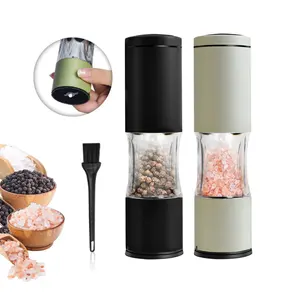





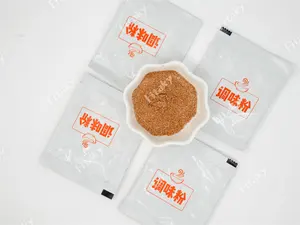






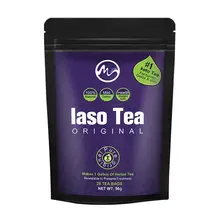

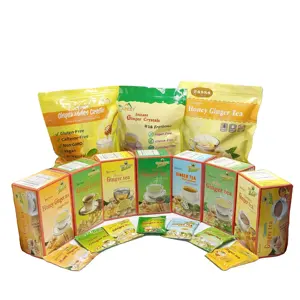








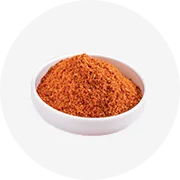

















 浙公网安备 33010002000092号
浙公网安备 33010002000092号 浙B2-20120091-4
浙B2-20120091-4